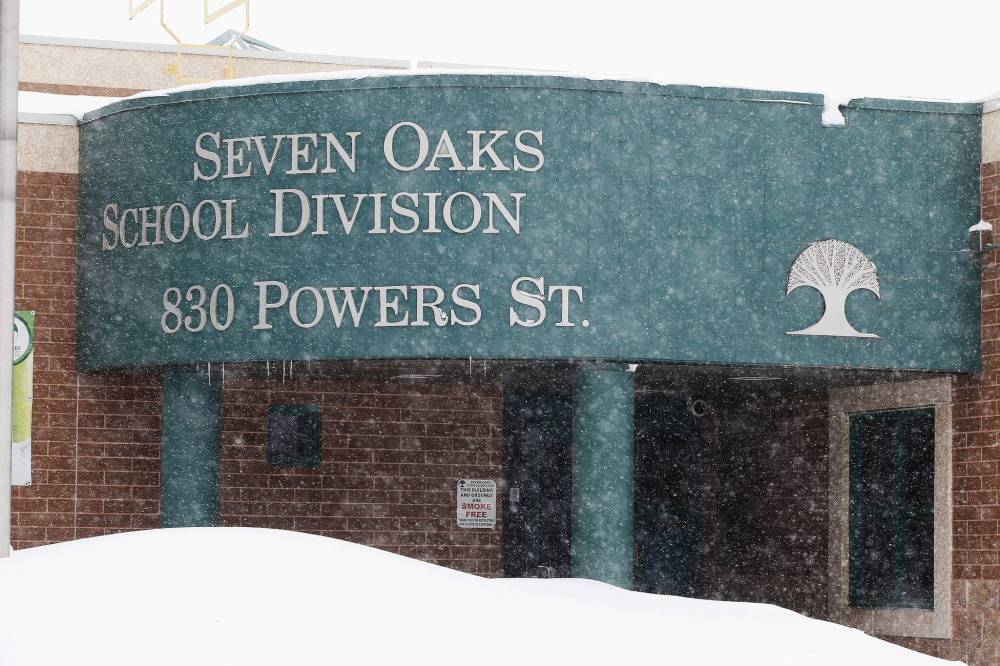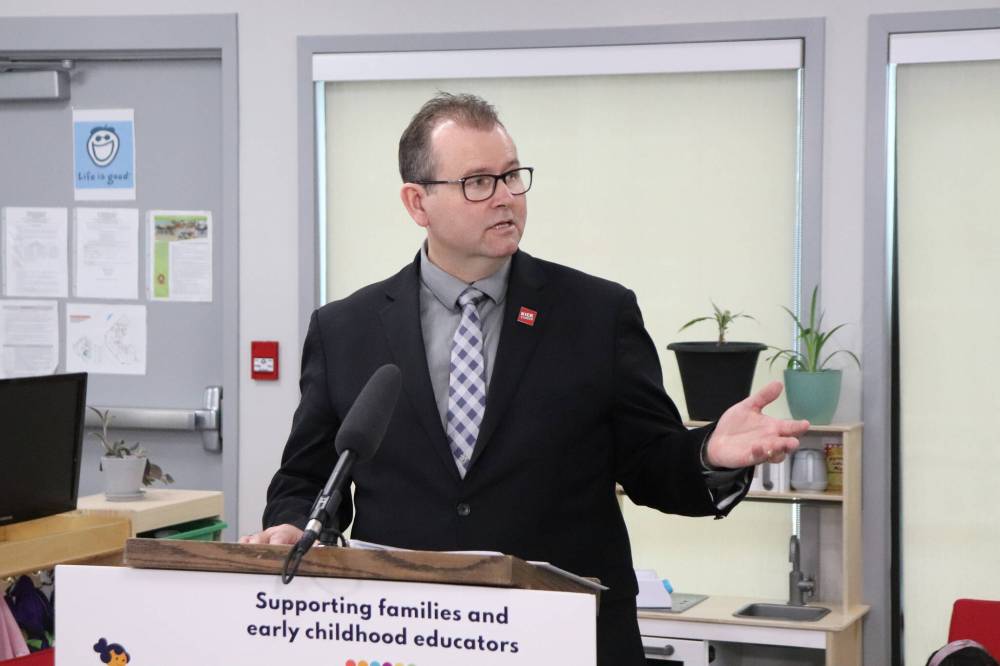Two school divisions defy provincial tax-freeze order
Advertisement
Read this article for free:
or
Already have an account? Log in here »
To continue reading, please subscribe:
Monthly Digital Subscription
$0 for the first 4 weeks*
- Enjoy unlimited reading on winnipegfreepress.com
- Read the E-Edition, our digital replica newspaper
- Access News Break, our award-winning app
- Play interactive puzzles
*No charge for 4 weeks then price increases to the regular rate of $19.00 plus GST every four weeks. Offer available to new and qualified returning subscribers only. Cancel any time.
Monthly Digital Subscription
$4.75/week*
- Enjoy unlimited reading on winnipegfreepress.com
- Read the E-Edition, our digital replica newspaper
- Access News Break, our award-winning app
- Play interactive puzzles
*Billed as $19 plus GST every four weeks. Cancel any time.
To continue reading, please subscribe:
Add Free Press access to your Brandon Sun subscription for only an additional
$1 for the first 4 weeks*
*Your next subscription payment will increase by $1.00 and you will be charged $16.99 plus GST for four weeks. After four weeks, your payment will increase to $23.99 plus GST every four weeks.
Read unlimited articles for free today:
or
Already have an account? Log in here »
Hey there, time traveller!
This article was published 17/05/2023 (930 days ago), so information in it may no longer be current.
More than one school board defied a provincial directive to freeze its local taxes — and in turn, forfeited an offset grant — to raise more money to pay for staff and programs in 2023-24.
Elected officials in Winnipeg’s Seven Oaks School Division and the Red River Valley School Division, whose headquarters are in Morris, both recently passed budgets that rely on resident fee hikes.
Superintendent Brad Curtis said Red River Valley has run deficit budgets and reduced countless programs and positions over the past five years to fall in line with repeated requests to raise its special requirement by no more than two per cent.

JOHN WOODS / WINNIPEG FREE PRESS FILES
Elected officials in Seven Oaks School Division and the Red River Valley School Division recently passed budgets that rely on resident fee hikes.
“For all of our stakeholders, (a 6.8 per cent hike) was the best decision to make,” the division leader said.
“There was a time when people wanted tax relief and now there’s a time, it seems, that they want services,” he added, recalling the budget consultation survey responses the division collected from about 300 residents in the winter.
The Stefanson government topped up education funding by six per cent overall for next year in response to the rising cost of teaching and transporting students.
Trustees across the province applauded the announcement — the largest annual increase in at least 25 years, and which Education Minister Wayne Ewasko called “astronomical” — but indicated it could not undo years of underfunding damage.
Red River Valley calculated its increase in operating support to be 1.3 per cent.
The rural division’s leader said it is a “victim” of the education funding formula because it does not qualify for equalization payments due to a combination of low enrolment and highly valued properties.
The division, which has classrooms in Oak Bluff, Saint Malo and Rosenort, among other farming communities, has a student population of roughly 2,350.
“Our means to balance the act of funding is capped at two per cent and I think we all know by now, two per cent isn’t keeping up with inflation over the last few years,” Curtis said.
Had the board followed orders, he said it would have had to make $916,150 in cuts.
The division has shrunk its information technology department, cut a foreman position, and reduced numeracy, literacy and behaviour coach jobs, among other measures in recent years.
Curtis indicated local residents expressed they wanted to see more mental health resources and speech and language support in public schools in the coming year.

“It is unfortunate that Seven Oaks and Red River Valley would choose to impose a tax hike on local property taxes during a time when Manitobans are struggling to cope with pressures of inflation and the rising cost of living,” said Education Minister Wayne Ewasko. (Tyler Searle / Winnipeg Free Press files)
This year, division administrators estimated a two per cent increase to the special requirement would equal $382,472.
Ultimately, trustees agreed to raise the special requirement by 4.8 per cent above the government-prescribed cap to maintain their programs.
As a result, the province did not release a $1.44-million sum, a so-called “property-tax offset grant,” that was earmarked for the division.
Ewasko confirmed only two boards didn’t abide by the ministerial directive.
“It is unfortunate that Seven Oaks and Red River Valley would choose to impose a tax hike on local property taxes during a time when Manitobans are struggling to cope with pressures of inflation and the rising cost of living,” Ewasko said in a statement.
Red River Valley documents suggest inflationary pressure has spiked its fuel budget by 18 per cent and insurance costs by 20 per cent.
maggie.macintosh@freepress.mb.ca
Twitter: @macintoshmaggie

Maggie Macintosh
Education reporter
Maggie Macintosh reports on education for the Free Press. Originally from Hamilton, Ont., she first reported for the Free Press in 2017. Read more about Maggie.
Funding for the Free Press education reporter comes from the Government of Canada through the Local Journalism Initiative.
Every piece of reporting Maggie produces is reviewed by an editing team before it is posted online or published in print — part of the Free Press‘s tradition, since 1872, of producing reliable independent journalism. Read more about Free Press’s history and mandate, and learn how our newsroom operates.
Our newsroom depends on a growing audience of readers to power our journalism. If you are not a paid reader, please consider becoming a subscriber.
Our newsroom depends on its audience of readers to power our journalism. Thank you for your support.


